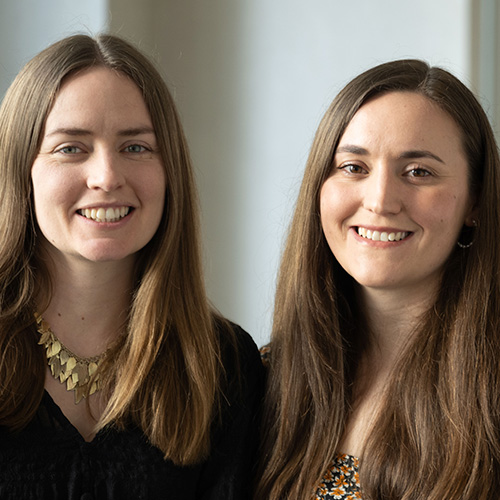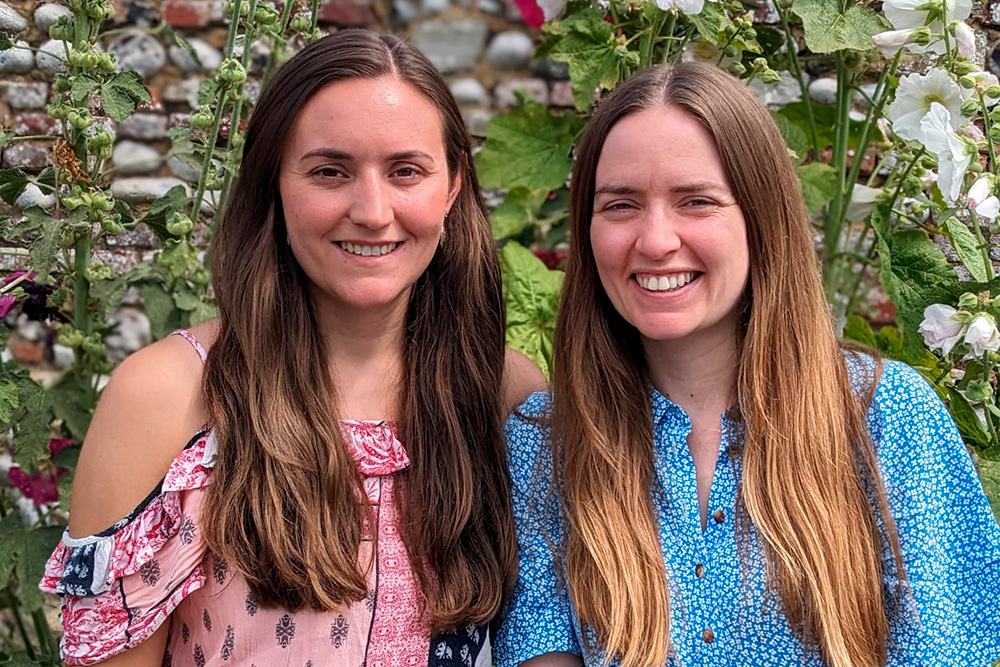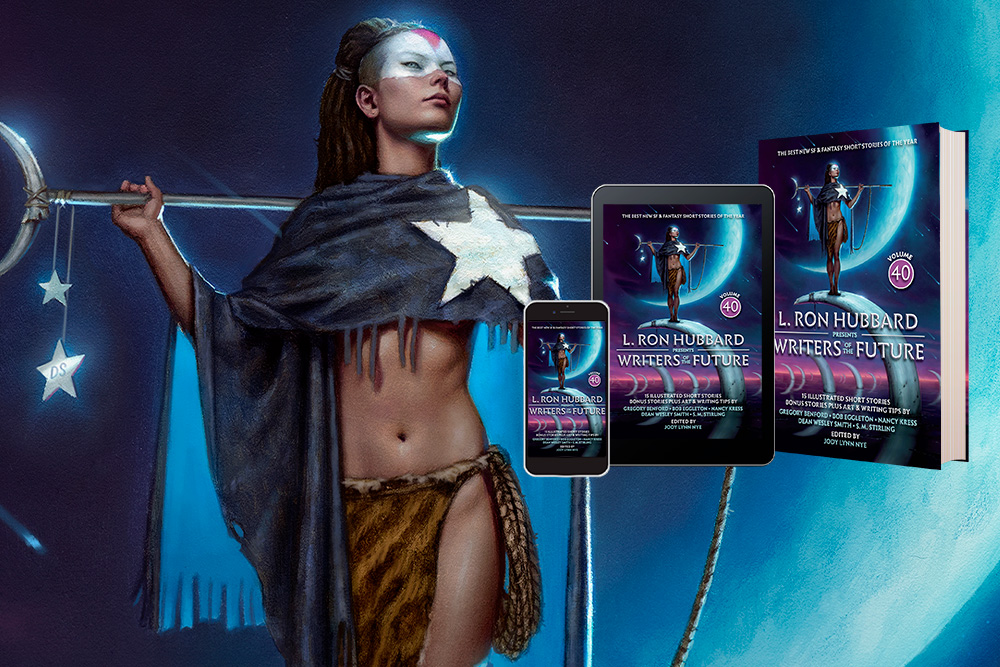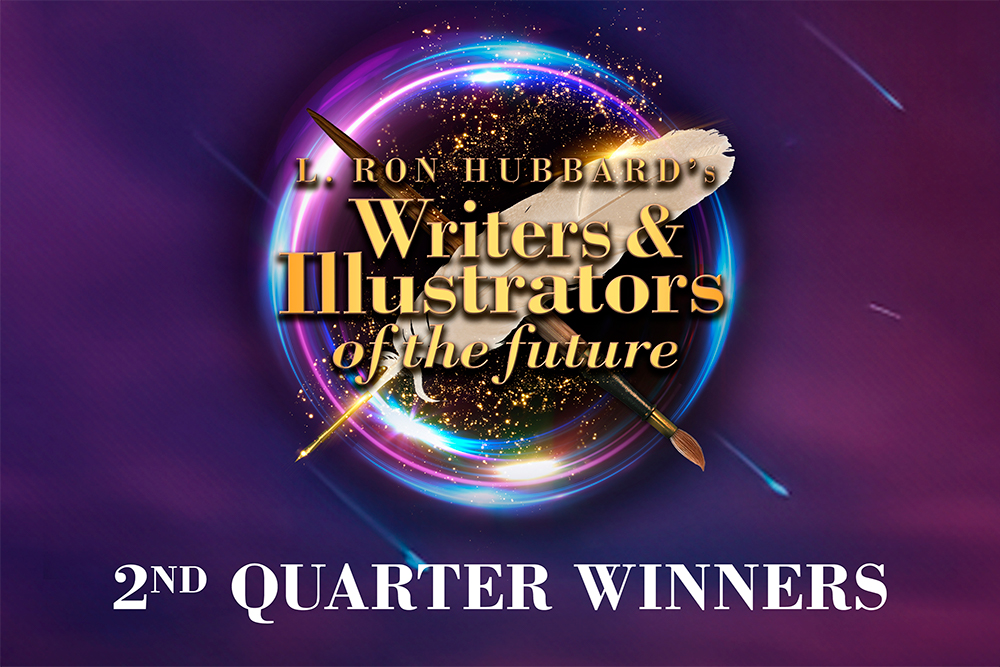Becoming Writers of the Future
It was our third attempt at entering the Writers of the Future Contest. We had a rough draft for a story ready to go, and with only a couple of months until the deadline, we met online to discuss next steps.
But there was a problem. As we went through the draft together, we realised it wasn’t quite right. The concept was interesting, and we liked the characters, but the pacing was wrong. It skipped over bits, rushed to the conclusion. And it was already well over the 17,000 word count.
As collaborative writers, we’d spent a lot of time on video calls together. Plotting, editing, making decisions as a team. We knew we had a big decision to make. Scrap our existing idea and start over…or keep going, and try to squeeze what we had under the word limit.
We settled on a compromise. Shelve what we had for another day. Perhaps a novel or a novelette. And start from scratch with a new story for the next quarter.
This meant we needed a new idea, and quickly.
Writing inspiration
Writing is a weird exercise. Sometimes it’s a process of discovery, of writing to find the story. It’s a sense that it’s already out there, and with enough luck and hard work it will spiral from the ether onto the page.
And sometimes it’s a long process of intricate plotting, fuelled—if you’re collaborative writers like we are—by extremely long video calls that stretch into the night. Working in a language built between you that makes no sense to anyone else, but that somehow needs to transform into a story the reader understands and enjoys.
Our story, “The Wall Isn’t a Circle,” was born partly from a feeling, and partly from a plot constructed over long video calls.
It explores a world where virtual time travel is possible, where an app grants the ability to see through the eyes of any human in history.
The “feeling” came from our fascination with time travel. All the stories that lie in the past, hidden, forgotten.
Yes, we’re certainly looking back through rose-tinted glasses, and of course we’re grateful for all the things modern life brings—progress towards equality, antibiotics, our favourite books, and TV shows.
But sometimes the urge to step back to a simpler time is overwhelming: an almost physical ache for a world we can never reach, but that sometimes seems so close.
This longing for the past also ties into our relationship as sisters. We shared a childhood, we have a joint memory of a world that no longer exists. We tried to tie that sisterly bond into the story we were telling.
But there were lots of other concepts that influenced us too, elements that we built into the plot as we expanded our idea and began to work out how virtual time travel might work.
In part, this was inspired by Alice’s friends in the US. During the COVID-19 lockdowns she started exchanging short videos with them, snapshots into each other’s lives. They’d send her pictures of the snow piled above their shoulders, and she’d return pictures of the rain lashing against the window. She’d receive a clip of their dog lolling in the sun and send back a shot of the river winding through Norwich city centre.
Sometimes, she’d be walking home from work and wonder what they would think, if they were suddenly dropped into her consciousness.
And then things started moving. The idea that consciousness could be mapped like spider bots crawling through brains, crawling through time, similarly to how the web is mapped by search engines.
All these elements, the feelings and the ideas that occur to us walking home on a rainy Wednesday afternoon, came together to form our story.
In the end, “The Wall Isn’t a Circle,” was also close to the word count. But the pacing felt right. And the story fitted into the length we needed it to. It just goes to show that whilst there might be a “sweet spot” for winning stories, the most important thing is that the story works.
The writing process
Probably the most common question we’ve had since winning the Writers of the Future contest is, “how do you write together?” followed, frequently, by “but what happens if you disagree?”
Let’s start with the first question. The answer is: it varies. We tend to plot a story together, particularly for a longer piece like “The Wall Isn’t a Circle.” Sometimes we’ll take that outline and one of us will run with it, then the other will edit the result. Sometimes we’ll split up an outline, scene by scene. And sometimes we’ll sit on a video call, arguing over each word as we write and edit the story.
So, about that arguing….
Writing together is a lot of fun, but it can be frustrating too. And we certainly disagree on things. But we’re lucky to have very similar brains (one of the perks of being sisters!) and even when we do disagree, by talking it out we can normally come to a resolution—the days of throwing things and pulling hair are certainly in the past!
Our biggest disagreements tend to come, not in the writing process, but in the process of deciding what to write. We need projects that we’re both passionate about, that we’re both inspired by, or we won’t have the shared motivation to finish them.
A few thoughts and tips if you’re entering the Contest
When you’re sending in an entry, you can never know what the other entries will be, or which stories have already won. And that matters, because each story forms part of an anthology that needs to feel varied in genre and tone. You might submit an incredible witch story, but if the judges have already picked one as a winner, your chances of winning are lower.
So, try to think about elements you can add to your story that will differentiate it from others. Every story is unique, but what makes yours stand out as fresh and original in its thoughts, ideas, characters, and themes? The answer probably lies somewhere with your own personal experience and passions, because that’s something that nobody else has access to.
We’d also personally recommend pushing yourself to write something new each quarter. Finishing your stories is super important, but getting bogged down in endless re-edits is a time-trap. By writing new stories you’ll have the chance to practise your storytelling craft whilst also getting a feel for what you love. And at the end of the year, even if you haven’t won, you’ll still have four fresh stories to send out to other markets!
Lastly, we’d encourage you to look after your wellbeing. Getting rejected really does sting. Whether it’s the first, sixth, or fiftieth time, it can feel like you’re trudging through mud getting nowhere. But remember you’re not alone. Every writer gets rejected.
Just think of yourself as the main character of your own story. You’d never write yourself to succeed straightaway—there’d be challenges, antagonists, last stands.
But that doesn’t mean you won’t succeed in the end.

Rosalyn Robilliard is the pen name for sister writing team, Alice and Rose Robilliard.
Growing up in a tiny English village on the Essex coastline, their imaginations were sparked at an early age by the ancient woodland and salty marshes. As children, they drew comics, wrote stories and constructed elaborate fairy worlds.
Later on, they shared a house in Manchester and began talking about writing stories together more seriously. Much studying and research ensued, in which time they realised that writing was the only place they could really return to the freedom and imagination of their childhood. It was an escape, but also a place where they felt most at home.
When Alice moved across the country to Norwich and Rose stayed in Manchester, writing gave them the perfect excuse to stay connected, spending a few hours each week nattering away on video calls, exploring realms beyond everyday reality.




This is wonderful! “Just think of yourself as the main character of your own story. You’d never write yourself to succeed straightaway—there’d be challenges, antagonists, last stands.
But that doesn’t mean you won’t succeed in the end.”